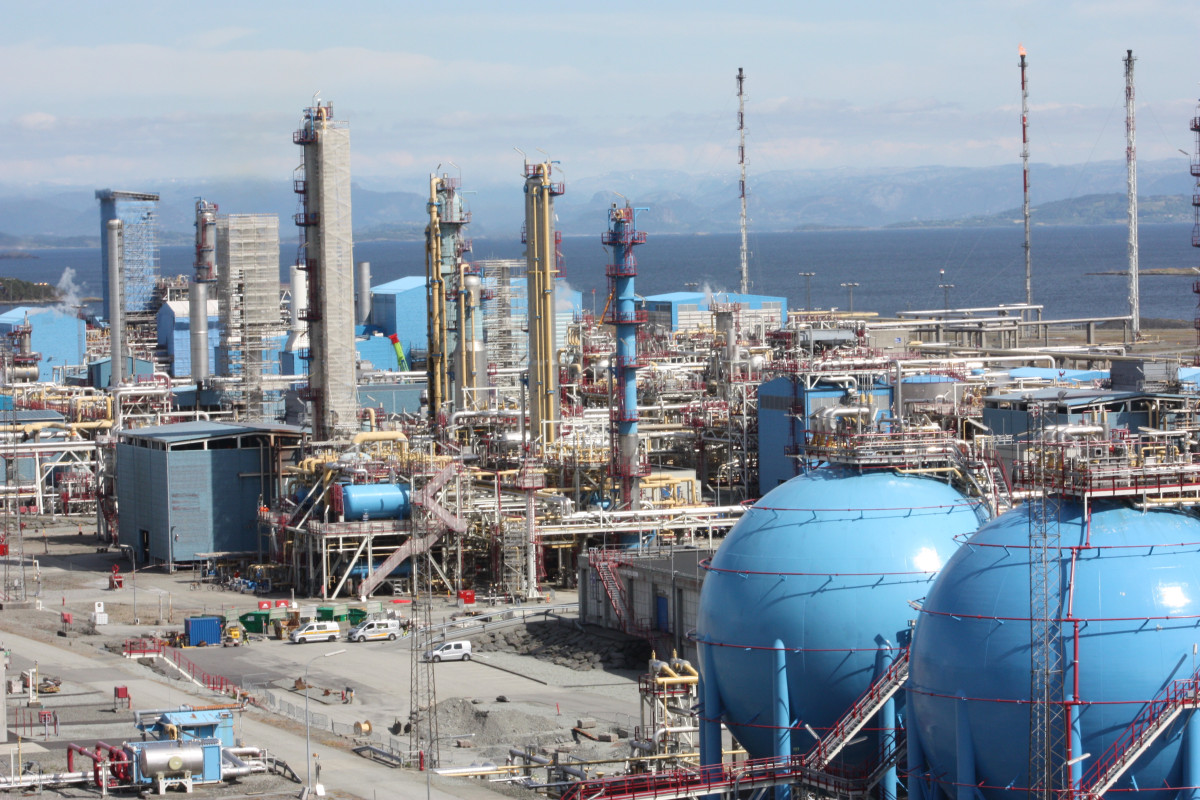Security concerns in focus as Norway provides almost half of German gas supply
Norway has become the dominant supplier of fossil gas to Germany, providing 48 percent of the fuel crossing the border into the country in 2024, data by the Federal Network Agency (BNetzA) has shown. That is up from 43 percent in 2023.
“Norway is a very reliable partner, but also the Achilles heel of our energy supply,” Timm Kehler, head of gas lobby group The German Gas and Hydrogen Industry, told newspaper Frankfurter Allgemeine Zeitung (FAZ). He warned that critical infrastructure could be sabotaged, such as the pipeline network connecting Norway’s gas production in the North Sea with Germany. Germany was not prepared for such a major disruption.
Still heavily reliant on fossil fuel imports, Germany sources about 95 percent of the its gas needs from imports also after undergoing a major shift in its energy supply following Russia’s invasion of Ukraine in February 2022. Before the war, Russia was the main supplier of oil, gas and hard coal to Germany, covering 55 percent of the country's gas demand. Russia halted pipeline supplies to Germany in late August 2022, and only weeks later an act of sabotage destroyed parts of both Nord Stream 1 and Nord Stream 2 – direct gas pipelines from Russia to Germany in the Baltic Sea.
Russian gas likely finds its way to Germany
However, Russian gas continues to be imported to the European Union via pipeline (mostly Turkstream), and as liquefied natural gas (LNG). There is no embargo on such imports, yet. The EU has, however, decided on a ban on the use of EU ports for the transshipment of Russian LNG to other destinations, taking effect from March 2025.
Net imports of LNG from Russia into the EU increased by another quarter in 2024, and one in five cargos into the union was of Russian origin, data by energy intelligence service ICIS shows. As Europe has a well-connected pipeline network, parts of this gas are likely to make their way to Germany.
The BNetzA data refers to gas flows entering Germany at the various border crossings. In many cases, the origin of the fuel cannot be directly derived: Dutch and Belgian deliveries may include LNG from Russia, the U.S. and other suppliers which land at ports like Rotterdam in the Netherlands.
However, the pipeline gas from Norway is directly sourced from the Scandinavian neighbour through the North Sea, making Germany heavily dependent on the country’s reserves – and vulnerable to any disruptions. Data from energy industry association BDEW shows that, in many months of 2024, more than 47 percent of the gas consumed in Germany came from Norway.
The war on Ukraine and the energy crisis also pushed Germany to build domestic LNG import terminals to help diversify supply. With cheap Russian pipeline gas readily available, this had not been economical in the past. The first temporary import terminal – which can harbour a so-called Floating Storage and Regasification Units (FSRU) used to regassify the LNG to feed it into the grid – was inaugurated at the end of 2022.
Since then, NGOs and researchers have criticised the government for pushing for a "massively oversized" import capacity, citing an expected decrease of gas demand and substantial capacity in neighbouring countries. The government argues that a significant "safety buffer" is necessary to secure German and European supply.
In 2024, eight percent of total gas imports arrived at the three existing German terminals, said BNetzA.
Germany rejects the direct import of Russian LNG at the three domestic terminals, but the nationalised gas importer and trader SEFE – which formerly belonged to Russian Gazprom – still has a long-term contract for deliveries from the Russian Yamal LNG plant. News service Tagesspiegel Background reported that much of the gas has arrived at the French Dunkirk import terminal and either been transported onwards or fed into the European grid. The EU ban on transshipments could therefore actually increase imports of Russian LNG, wrote Tagesspiegel. SEFE told the news outlet that it does not directly sell Russian deliveries to Germany.
The main direction of flow in the Western and Central European gas network has been from west to east since the Russian pipeline supplies stopped, wrote Tagesspiegel. “This makes it likely that Russia, with the help of SEFE and the Dunkirk terminal operator Fluxys, is bringing Siberian gas into the German network and generating income for its war chest,” it wrote.
German LNG import infrastructure “secondary” for supply security – NGO
NGO Environmental Action Germany (DUH) criticised that the German terminals were used at low capacity and provided “at best a secondary contribution to security of supply” in the country. “The share of LNG in the German gas supply remains in the single-digit percentage range for the second year in a row,” said managing director Sascha Müller-Kraenner. As the energy transition progressed, the demand for gas in Germany and Europe would continue to fall. “It is absurd that new LNG terminals are nevertheless being planned in Germany,” he said, calling for a halt on expansion.
BNetzA said that Germany used a total of 844 terawatt hours of gas in 2024, an increase of 3.5 percent over the previous year. More than 60 percent was used by industry consumers, while households and trade used the remainder, largely for heating and warm water.


